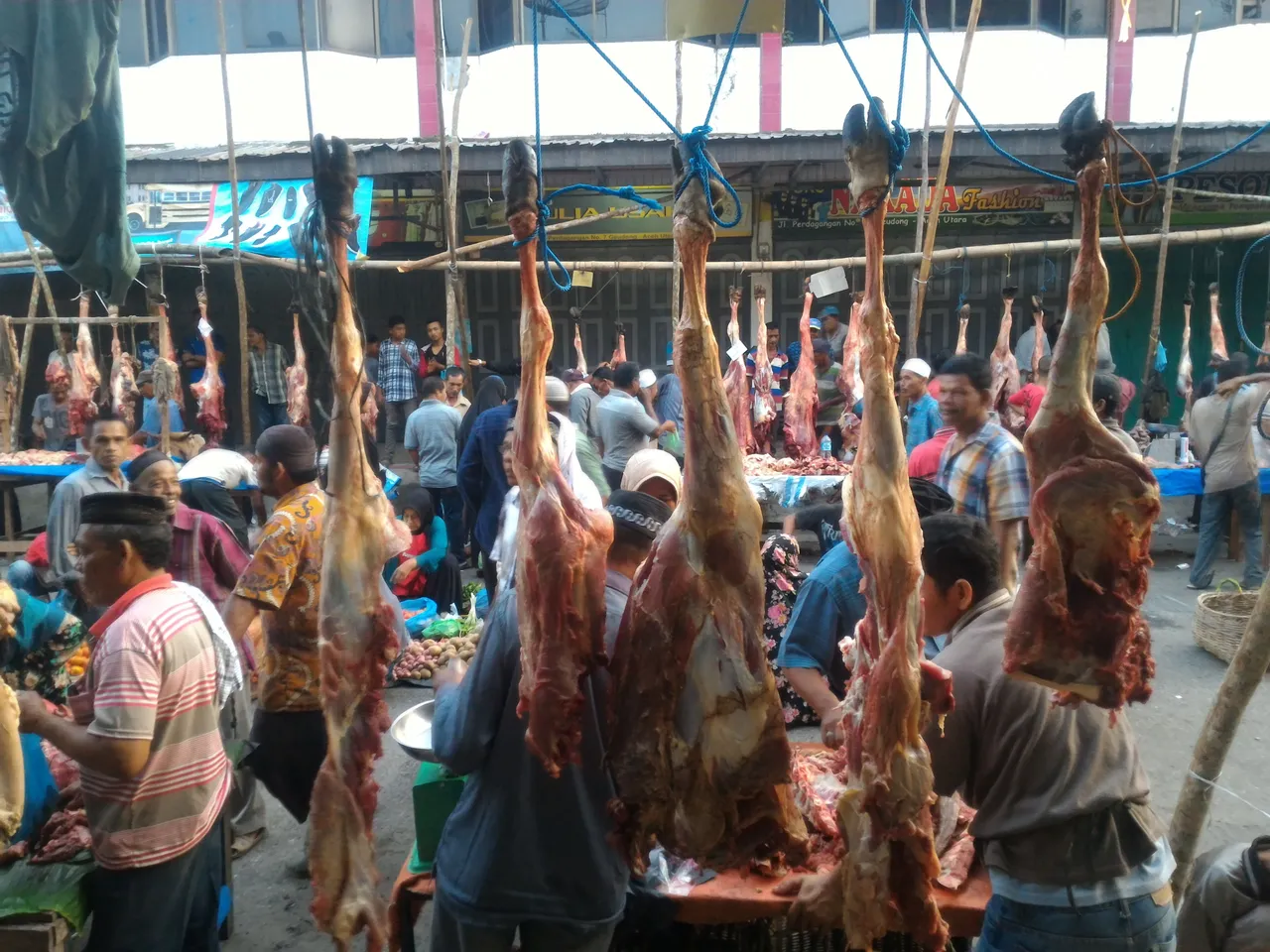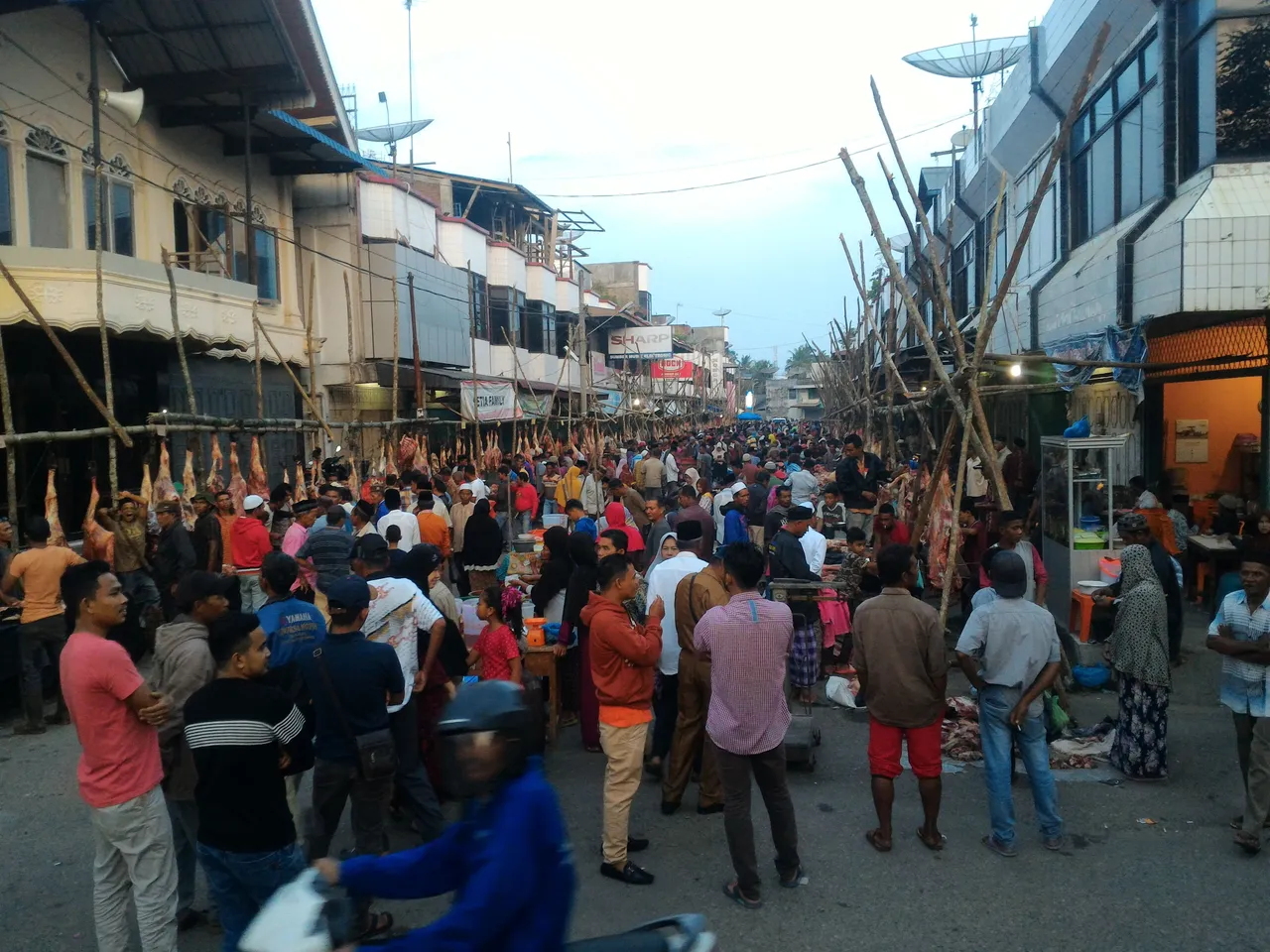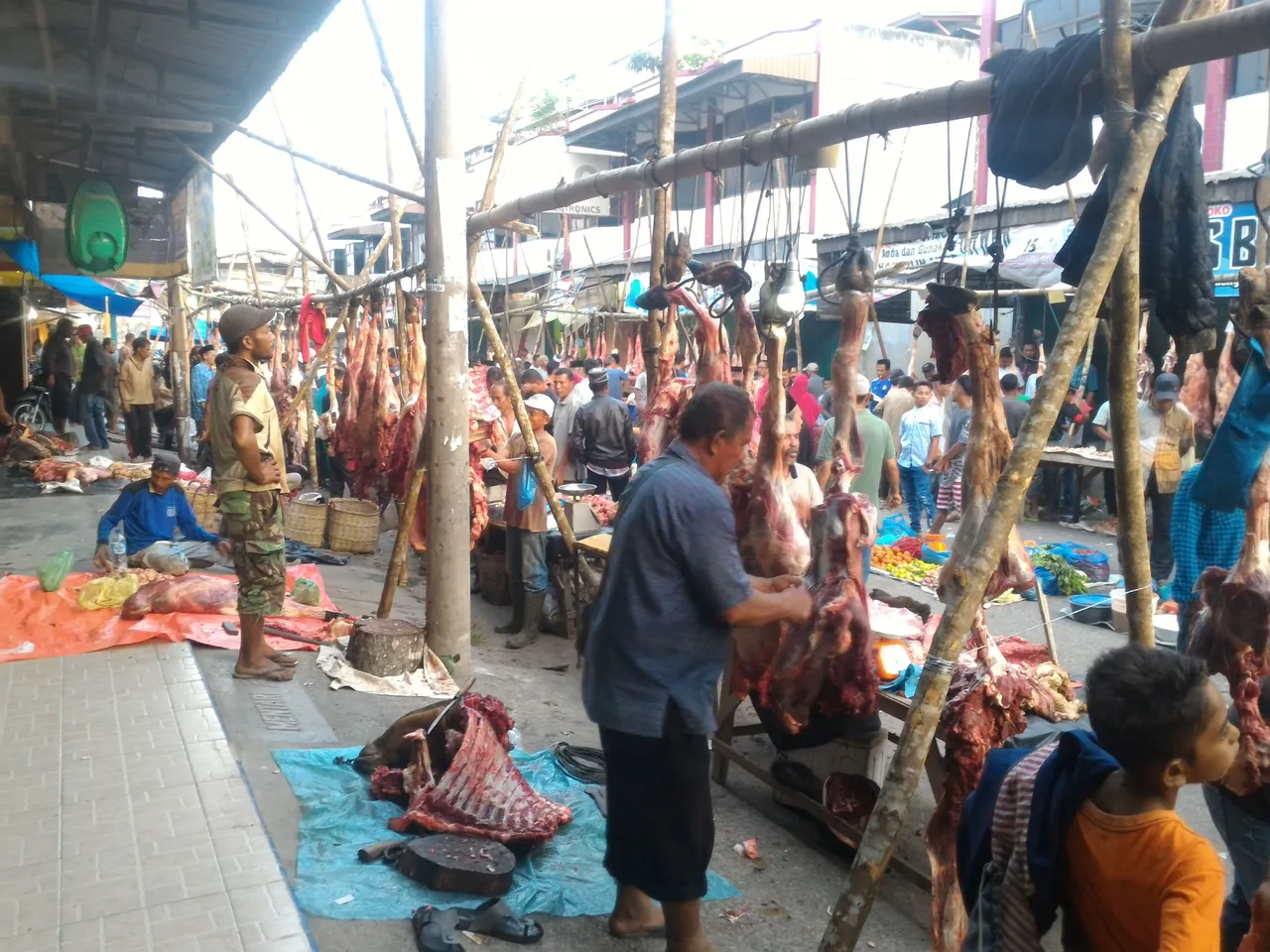
Meugang is a cultural tradition for the people of Aceh that have existed since hundreds of years ago. This tradition is always commemorated two or three days before entering the holy month of Ramadan.
Meugang synonymous with togetherness, by eating beef or buffalo cooked with a wide range. This activity is believed to have existed since the time of the kingdom of Aceh Darussalam in the 16th century AD.

Until now still preserved by the people of Aceh. It was seen, when entering the day Meugang, people in droves to buy beef and buffalo. Society does not care about the price of meat that when Meugang can rise up to 50 percent, as long as it can follow the day Meugang with members of his family.
As in the District of Southwest Aceh, Nagan Raya and Kota Banda Aceh, the price of meat initially only ranges from Rp120 thousand per kilogram (kg). However, when Meugang can soar to reach Rp180 thousand per kg.

Two days before Meugang is also marked by the emergence of the impromptu meat market by the roadside. This market only lasted for four days, before entering Ramadan. They open stalls and peddle fresh meat to buyers.
On the other hand, Meugang gives opportunity to the benefactors to give charity to the poor, the duafa, orphans and others to feel the same in welcoming Ramadan.
The tradition of Meugang is an inheritance, and the people of Aceh are required to maintain their purity for the sake of togetherness and the nature of mutual care and compassion, especially to orphans and the poor and the duafa in Aceh.
"Greeting the holy month of Ramadan in Aceh is already a tradition of such things, the joy of both social groups in society and fellow families, eating together with fresh meat," said the man who is familiarly called Midi Cek.
Meugang is indeed a very unique and powerful tradition and culture in Aceh. On Meugang day, everyone's status is equal. According to him, the excess can help the less able.
"This is the provision of Qanul Al Asyi that has been for hundreds of years. This tradition is so alive and echoing, "he said.